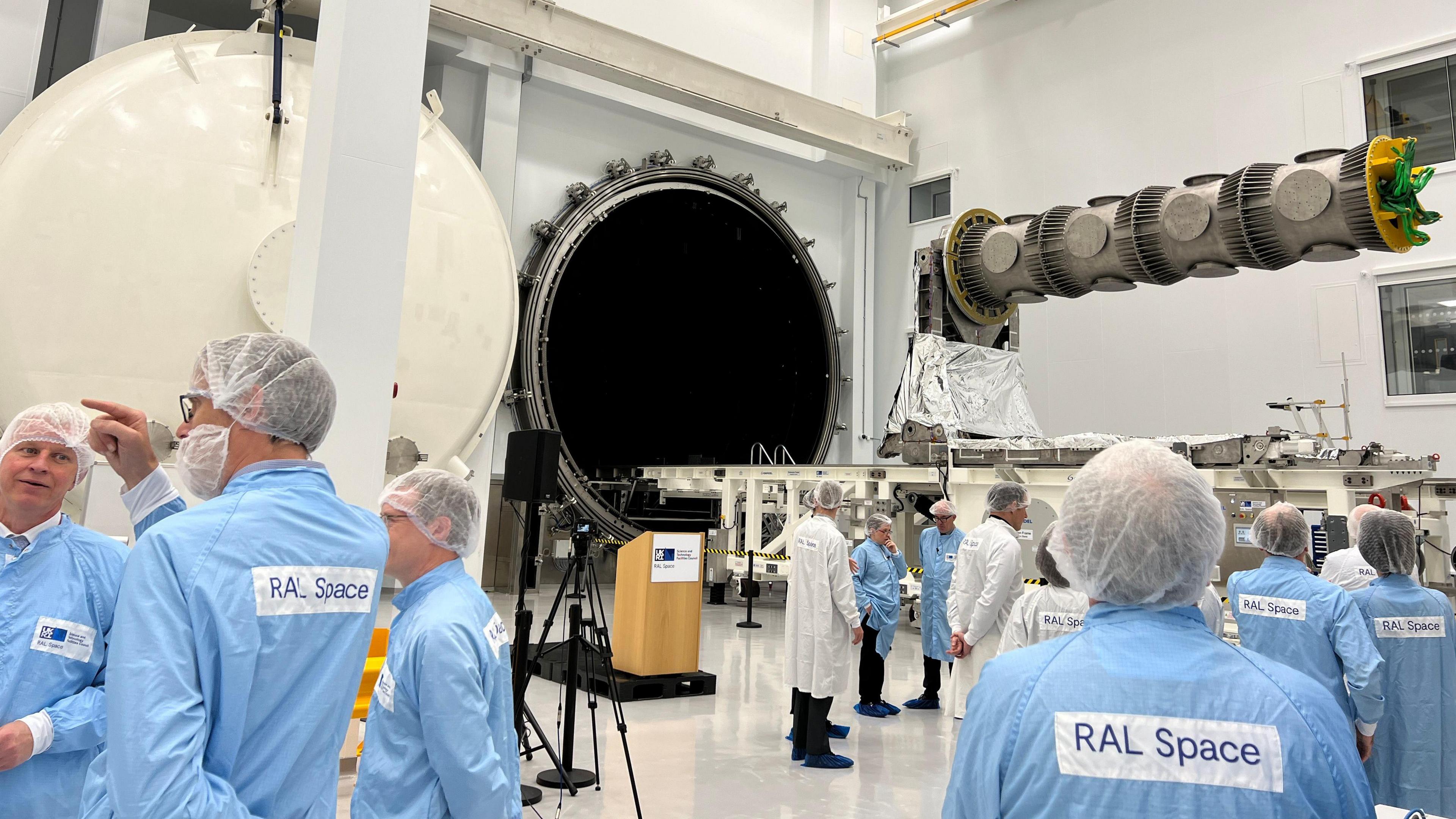Human tissue launches in space for the first time
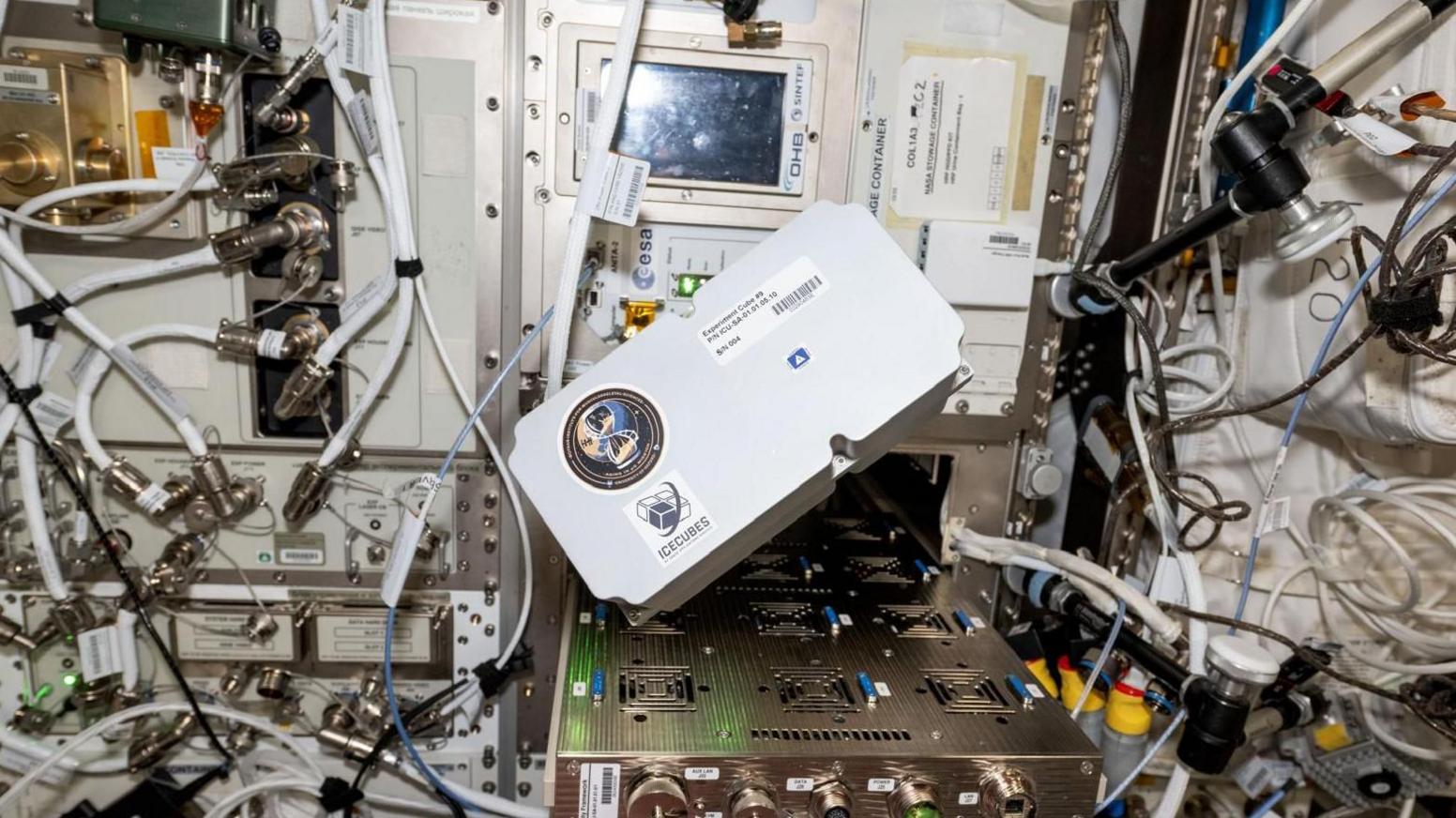
The supply mission that contained the box with human tissue lifted off from Florida on 5 November
- Published
Human tissue samples have been taken to the International Space Station (ISS) as part of an experiment that could help treat people in old age.
Researchers from the University of Oxford's Space Innovation Lab (SIL) prepared them for the launch of a resupply mission that lifted off from Florida on Tuesday.
The samples will be used to study the effects of space micro-gravity on the human ageing process.
SIL lead Dr Ghada Alsaleh said the "exciting and important project" aimed to gain insights that could lead to breakthroughs in understanding and treating age-related diseases.
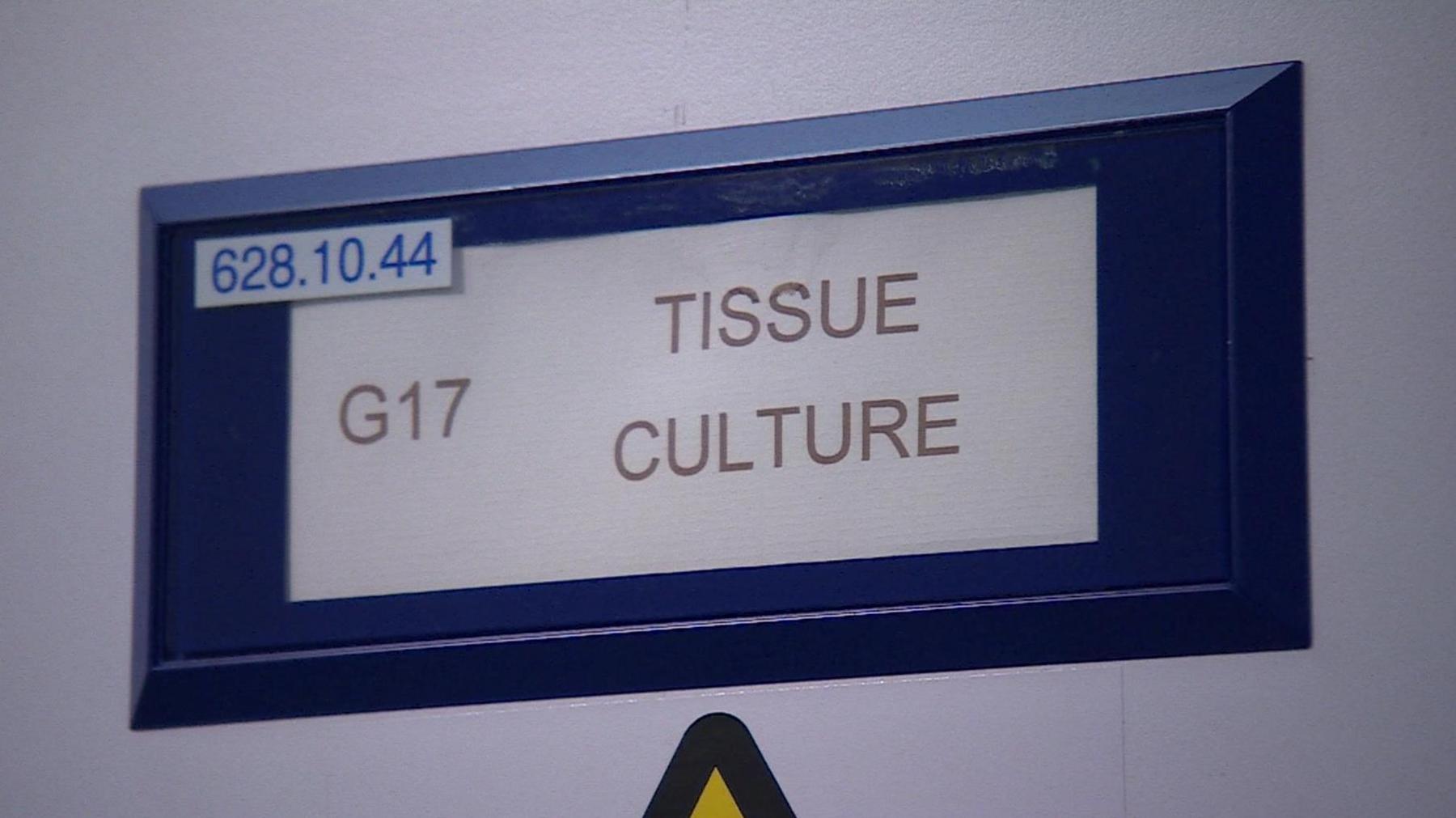
It is hoped the data gathered from the experiment would lead to breakthroughs in treating degenerative diseases
The SIL at the Botnar Institute of Musculoskeletal Sciences at Oxford's Nuffield Department of Orthopaedics, Rheumatology and Musculoskeletal Sciences (NDORMS), opened in July 2023 and is the first of its kind in the UK.
Dr Alsaleh said the "really unique" feature of the cube they sent into space was that "a very small computer and a microscope" were fitted into the box.
"That allows us to see the cells and what happens in the media around it, all controlled from our lab without the help of astronauts," she said.
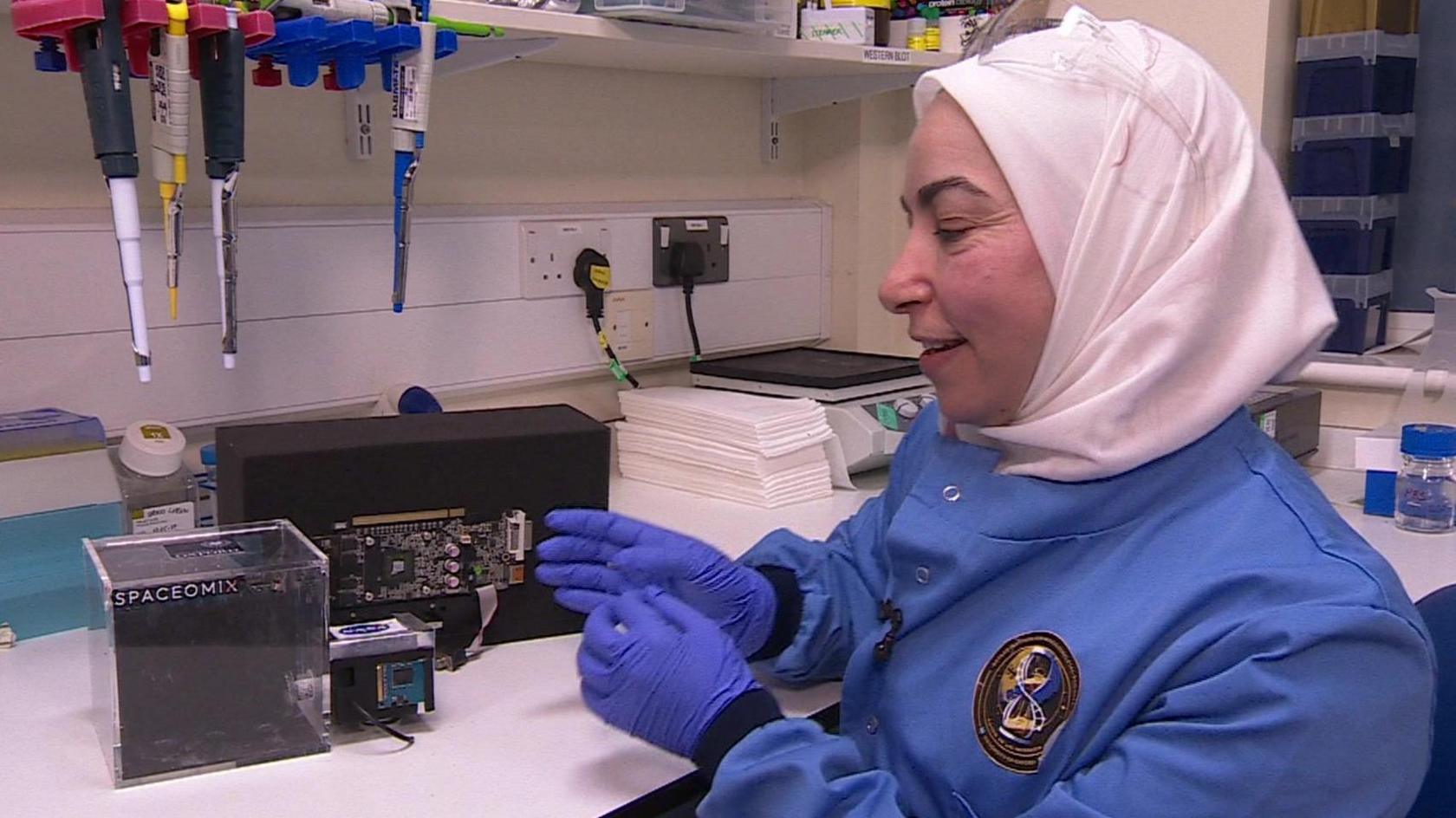
Dr Alsaleh explained that their model contained "a very small computer and even a microscope"
PhD student Ariana Portela described the study as "surreal".
"It's absolutely amazing, it's a dream come true," she said.
"I love studying ageing and senescence, which is when the cells start getting older."
She explained that cells "regenerate and clean themselves".
"When people get older, these mechanisms stop working," she said.
The samples will be exposed to micro-gravity and will stay in space for a month.
"When they come back, we'll test markers associated with old cells."
Ms Portela said she wanted to "try and test a new drug target for degenerative diseases to combat ageing".
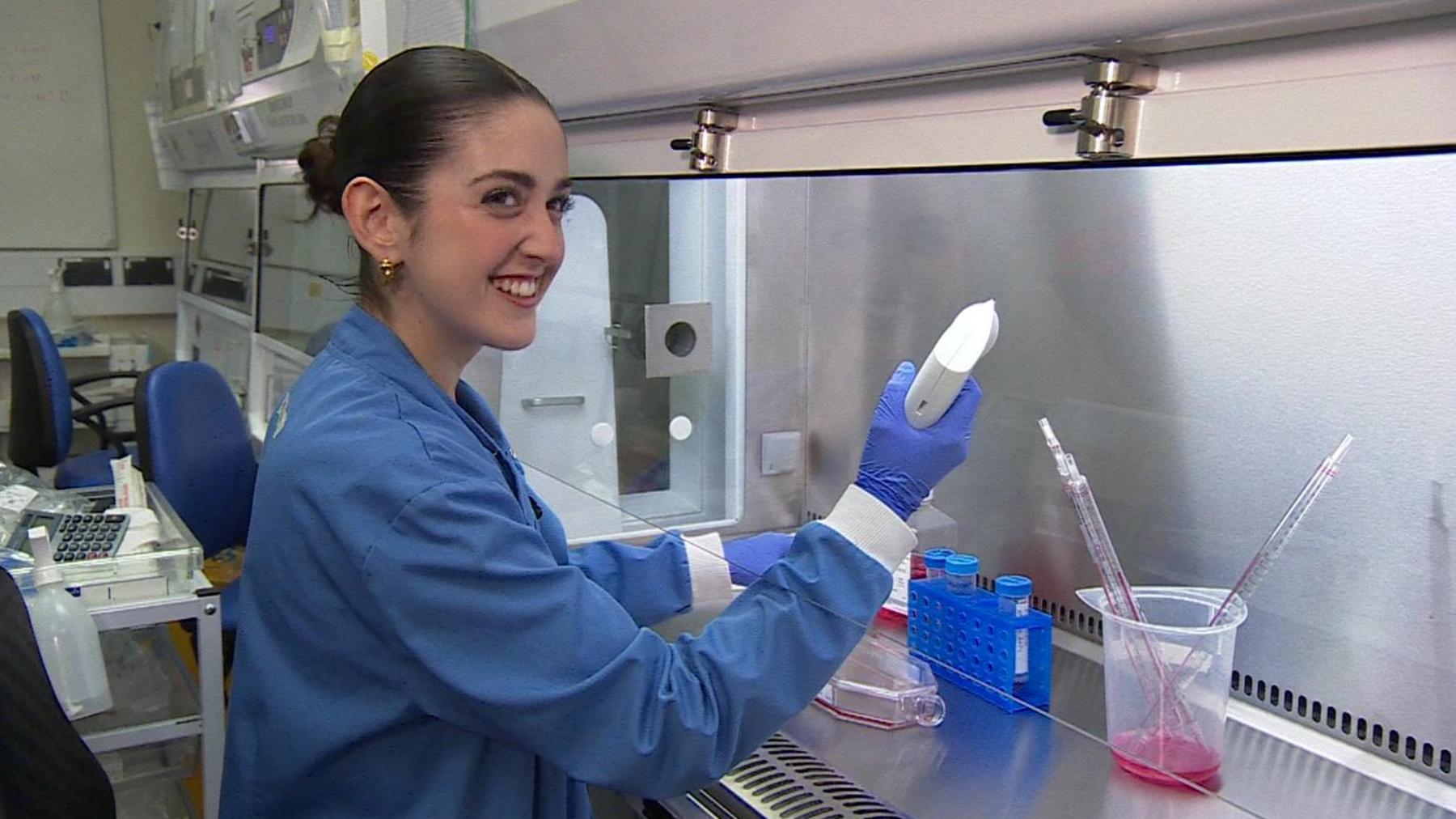
For PhD student Ariana Portela, being part of the project is "a dream come true"
Through a microscope, researcher Loren Kell can see how the cells change as various features show in different colours.
"We might see these colour changing over time - some proteins associated with ageing might become higher in expression," she said.
"That's the hypothesis we're testing with this project."
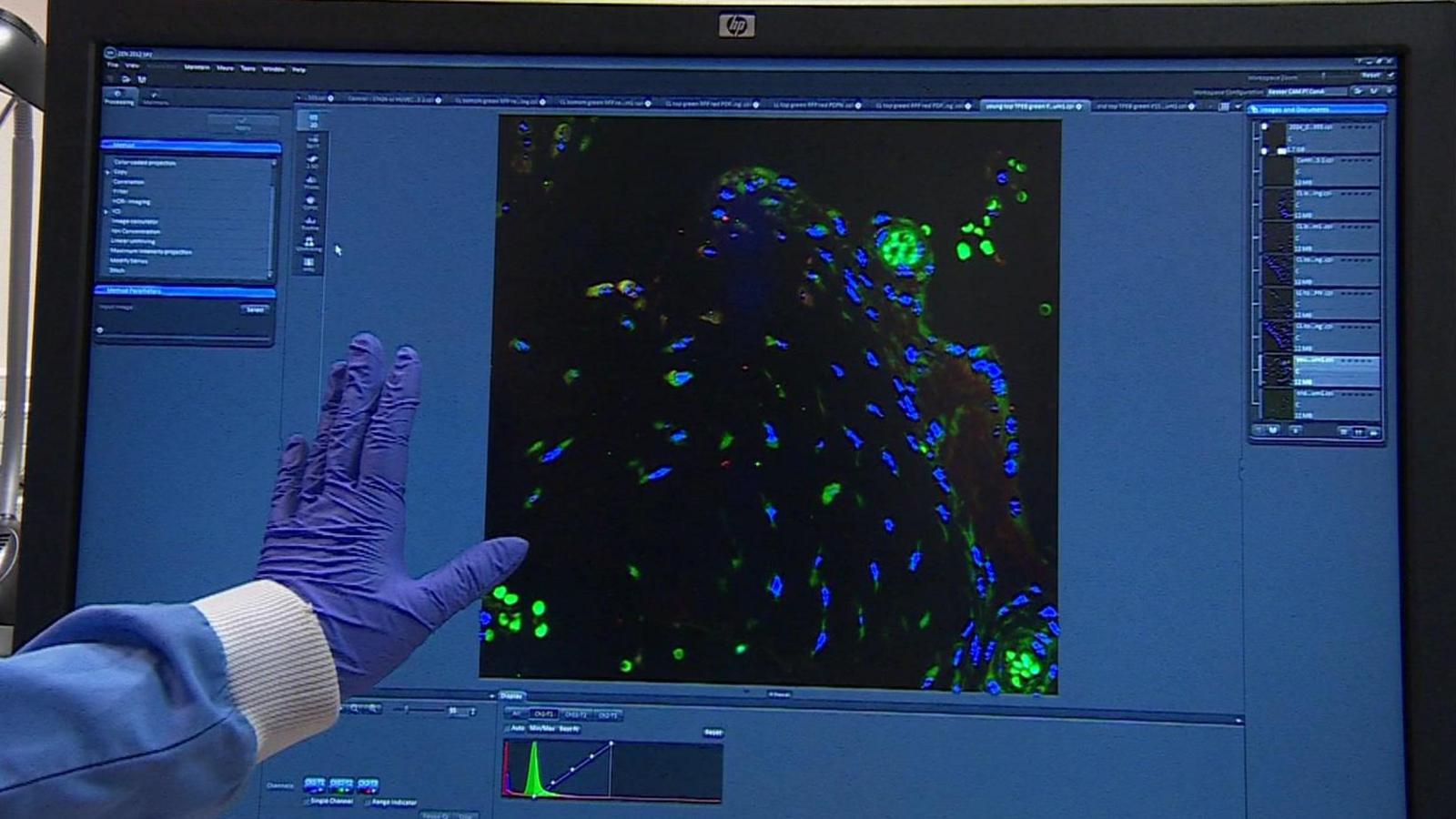
Researcher Loren Kell showed what different cells display on an image of stained tissue
Dr Alsaleh called it "exciting and important".
"We know that the elderly population has increased on earth, which is a very good thing - to increase the life span," she said.
"The main issue that these people mostly suffer from is different age-related diseases such as Alzheimer's or even osteoarthritis."
She said the idea for the project came from observing astronauts experiencing pain in their joints, muscles and immune system after a short time spent in the ISS.
"This is similar to what elderly people suffer on earth after a long period," Dr Alsaleh said.
If the samples age more quickly in space, scientists will learn more about the process far faster than they would if studying samples on Earth.
It is hoped that will lead to new treatments for age-related diseases.
She said: "This would have a great impact for people here, but also for the astronauts."
If the gathered data was positive, they might have "a great achievement" in two years' time, she added.
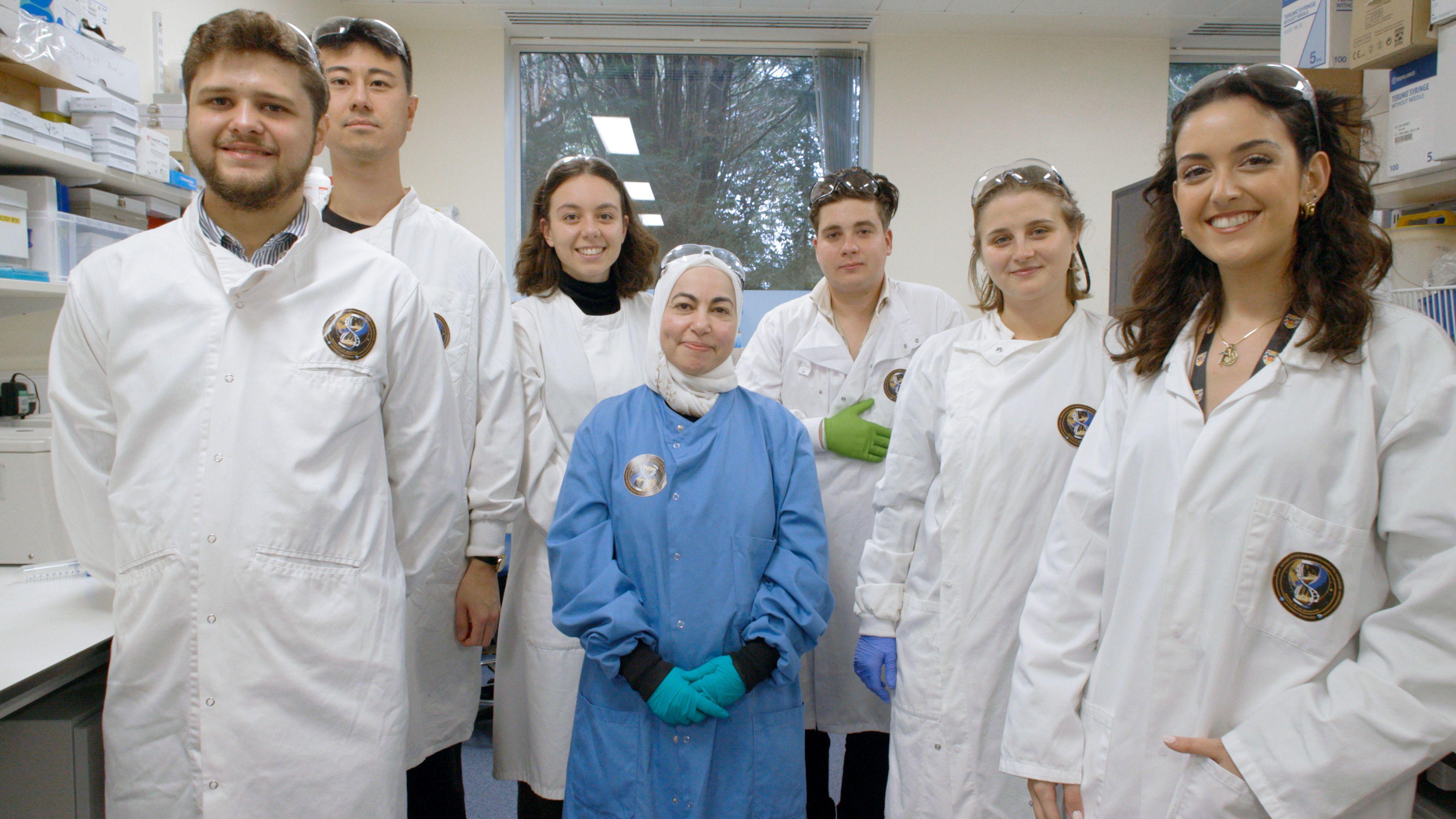
Dr Ghada Alsaleh and her team prepared the samples that were launched in space on 5 November
Get in touch
Do you have a story BBC Oxfordshire should cover?
You can follow BBC Oxfordshire on Facebook, external, X (Twitter), external, or Instagram, external.
Related topics
- Published25 October 2024
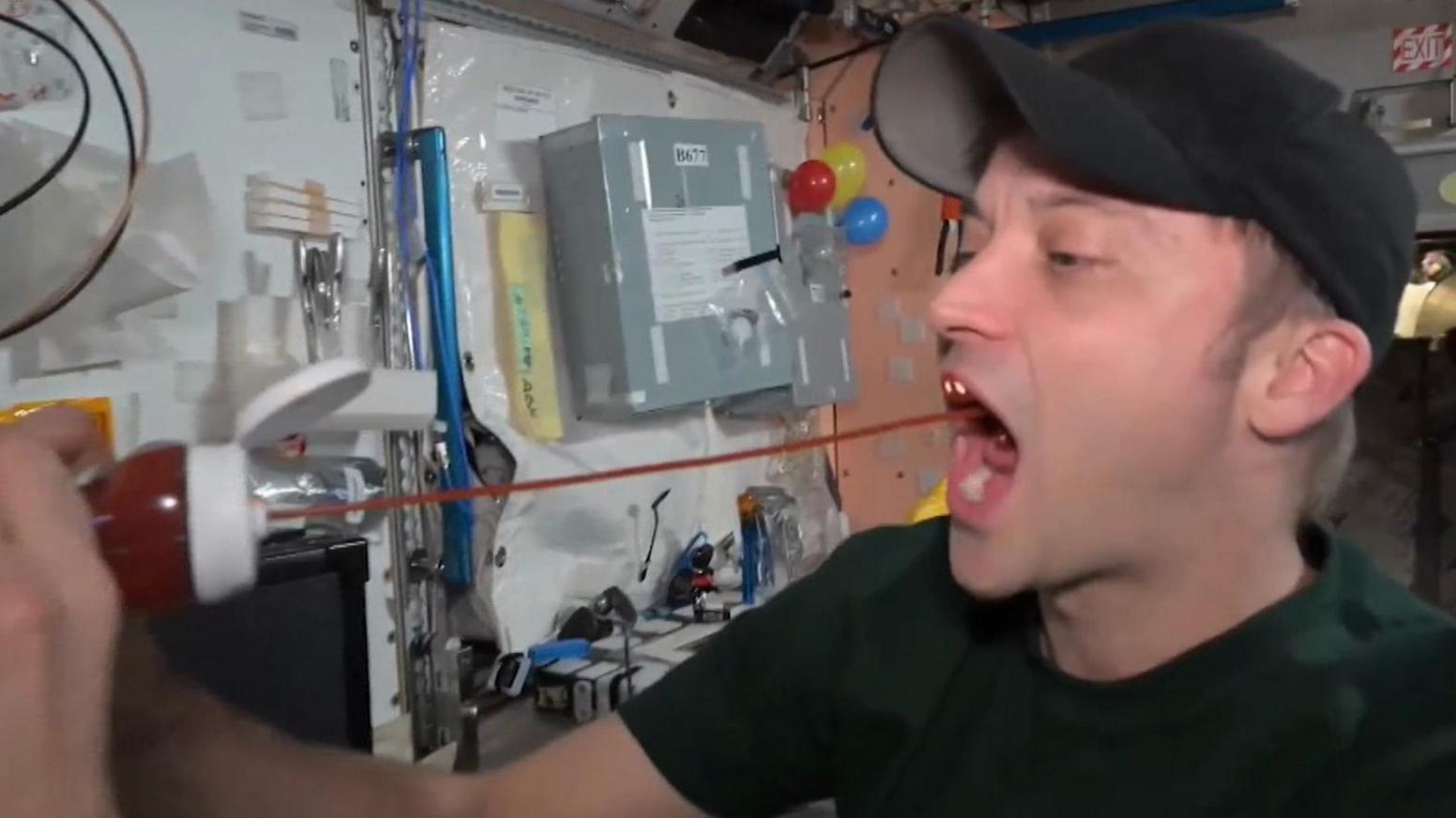
- Published22 October 2024
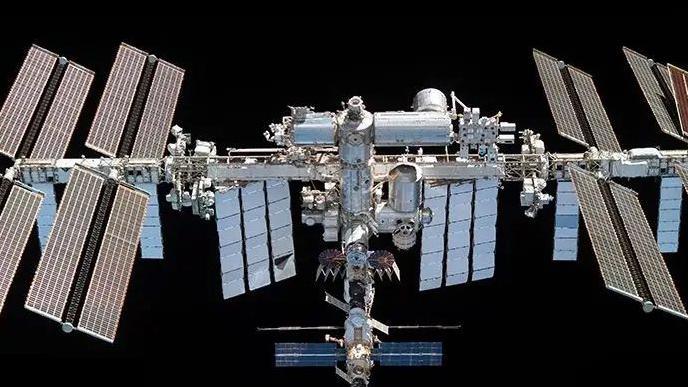
- Published22 May 2024
